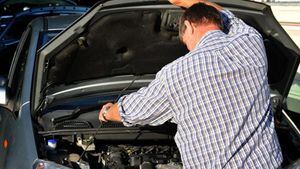Drivers shelling out more for diesel engine faults than petrol engine problems, study finds
Research by MotorEasy found that some diesel cars are nearly 20 per cent more expensive to repair than their petrol counterparts

Owners of older diesel cars can expect to pay more than petrol owners for engine repairs, new research has found.
Based on an analysis of 30,000 faults on vehicles three to eight years old, maintenance firm MotorEasy found that the average engine repair bill for a diesel was £517, compared with £433 for a petrol – a 19 per cent difference.
The results are another blow for diesel vehicles, it says. Last November, the government announced in the Autumn Budget that from this April all new diesels will face higher taxation unless they emit fewer pollutants, such as nitrogen oxide, and adhere to a Real Driving Emissions Step 2 standard – a certification that won’t exist until 2020.
The biggest diesel repair cost found by the study amounted to an eye-watering £4,030.80.
The research also noted that Alfa Romeo, with an average failure rate of 47 per cent, topped the unreliability list, while the most reliable diesel cars were made by Skoda, with a failure rate of just nine per cent.
Along with Alfa Romeo, Land Rover (41 per cent), Mitsubishi (36 per cent) and Saab (33 per cent) were found to have the highest average diesel engine failure rates.
The higher failure rates are mainly because of how diesel engines work, as they are put under more pressure than petrols. Diesel units rely on self-compression, meaning fuel is compressed to a much greater extent, putting more pressure on internal engine parts.
Duncan McClure Fisher, founder of MotorEasy, said: “Diesels experience many more smaller problems than petrol cars. They are less reliable and when a big item goes wrong it costs a lot more to put right.
“If you’re still considering a used diesel car, our advice is to avoid high-mileage examples, particularly if you are only driving low mileage or doing city driving.”





